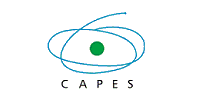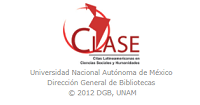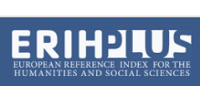Editorial statement on Ethics and Best Practices
Latin American Journal of Social Sciences, Childhood and Youth
(Revista Latinoamericana de Ciencias Sociales, Niñez y Juventud)
There is a need that all parties involved in the publication process, i.e. the author(s), the editor(s), the Editorial Committee, the Scientific Committee, the reviewer(s), the CINDE Centre for Advanced Studies in Childhood and Youth and the University of Manizales (the entity responsible for the publication of the content) follow the same guidelines in terms of ethical behavior. This is particularly important as we have a social responsibility with the Latin American children and young people who are the subjects of our articles and find themselves in a context that full of problems and challenges. Faced with this situation, we are committed to engaging in research and dialogue that will allow us to respond to these realities in an effective, relevant and responsible manner.
The following statement of editorial ethics is based on the COPE Guide to Good Practice for Publication Editors.
Decisions regarding the publication of manuscripts
The editor - with support from the co-editor and the editorial and scientific committees - is responsible for making decisions regarding which of the submitted articles are published in the Journal. They are guided by the policies and judgements issued by the editorial and scientific committees, as well as taking into account national and international definitions of defamation, copyright and plagiarism,.
The editor also has the power to make the necessary consultations and resolve conflicts of interest and other ethical issues relating to submitted or published manuscripts.
Fair play
During the different evaluation stages, manuscripts will be assessed solely on the basis of their intellectual content without regard to the race, gender, sexual orientation, religious beliefs, ethnicity, political philosophy or educational background of the authors or research participants.
The Journal is also interested in publishing manuscripts from any country without demonstrating any preference or bias. The Journal has a special focus on publishing articles from regions that do not have visible intellectual production.
Confidentiality
The editor and the entire editorial team will not disclose information about any manuscript that has been submitted to the Journal for review. The only people with whom information may be exchanged are the authors themselves, reviewers, editorial advisors and members of the editorial board and scientific committee.
Anonymity
The authors will ensure that the anonymity of their study participants is guaranteed, especially when they are children or young people. Similarly, if photographs of children and young people are used in the article, their faces will be completely hidden. The authors will seek informed consent from children and their parents / caregivers (as appropriate).
Disclosure and conflicts of interest
Unpublished material submitted to the Journal by the author(s) must not be used by the editor, reviewers, reviewers, editorial advisors or members of the editorial board or scientific committee without the express consent of the author(s).
If an author(s) has received any kind of financial support from an organization that is interested in the results of their research, and that organization has a potential financial interest in the results of their research, this relationship must be disclosed in the article.
Duties of reviewers
Contribution to editorial decisions
The reviewer, through a double-blind evaluation process, will assist the editor in the process of assessing whether the manuscript is of the necessary quality to be published. The will also assist authors in improving the content of their article.
Qualifications of reviewers and time period for reviewing an article
Any reviewer who feels unqualified to review any article, or believes that it will be impossible for them to comply with the time required to carry out the review, will notify the editor as soon as possible.
Disclosure and conflicts of interest
The reviewer must keep absolutely confidential any information, data or ideas obtained through the manuscript they are reviewing and may not use them for personal gain. Reviewers should not review manuscripts that could have a conflict of interest with their own work, with that of other authors they know or work with, or with companies or institutions that employ them.
Editorial process
Objectivity standards in the review process
The different reviews of the manuscript (by the editorial team or by the reviewers) will be carried out in an objective manner. All reviewers are expected to express their views with arguments that support their assessments.
Selection of reviewers
Reviewers will be selected using high standards of impartiality and professionalism, seeking to avoid any possible conflict of interest.
Recognition of sources
Reviewers should highlight any relevant work from another source that has not been cited by the authors. Any material not authored by the applicant should be properly cited. The reviewers or the editorial board will notify the editor if they become aware of any plagiarism, similarity or overlap between a manuscript that is being reviewed and other published work.
Duties of authors
Accuracy
Authors of original research papers must justify the scientific and social relevance of their research, present an accurate description of their work and objectively describe its significance. The data the article refers to must be accurately represented. Research papers should have sufficient detail, references and citations to enable others to replicate or correctly assess the work. Fraudulent, fabricated, falsified, falsified or deliberately inaccurate claims, data or results constitute unethical and unacceptable behavior. The article must not present any form of discrimination or disrespect any fundamental personal rights (especially those of children and young people).
Access to information and retention
Authors may be asked for information, data or documents in connection with the article being reviewed, all of which should be publicly accessible if possible. In any case, the author should keep this information for a reasonable period of time after publication.
Originality and plagiarism
Authors must ensure that they have written a completely original work and, if they have used the work of others, this must be properly cited. In relation to the use of large artificial intelligence language models (LLM), we follow the guidelines that have been established at an international level (https://www.nature.com/nature-portfolio/editorial-policies/ai) as the debate on the inclusion of LLM in research is still open
Multiple, redundant or concurrent publication
An author should not publish manuscripts that describe the same data, results, discussion or conclusions of the same research study that has already been published in
another scientific journal. Submission of the same manuscript to more than one journal constitutes unethical behavior and is unacceptable from an editorial point of view.
Recognition of sources and permissions for use
Acknowledgement of the work of others should always be made. Authors should cite publications that have influenced their own work. Permissions for the use of any material or elements covered by copyright must be submitted to the Journal without exception.
Author
The granting of authorship should be limited to those who have made a significant contribution to the conceptualization, design, execution or interpretation of the submitted work. All those who made significant contributions should be listed as co-authors.
When there are others who might have been involved in certain aspects of the project, they should be acknowledged by being listed as contributors. The corresponding author must ensure that all co-authors and collaborators have been appropriately included and listed in the submitted project, approved the final version of the project and agreed to submit it for publication.
Disclosure and conflicts of interest
All authors must disclose any conflict of interest that may be significant in the interpretation of their manuscript. All sources of financial support (direct or indirect) that helped facilitate the project must be disclosed.
Errors in published works
When an author discovers a significant error or inaccuracy in the publication of their own work, they are obliged to notify the Journal editor as soon as possible. They will help correct the error, or if necessary, withdraw it from publication.
Ethical considerations for publishing research on children and young people from Latin America and the Caribbean
In addition to the Journal's commitment to ethical standards with the publication of academic articles, our guiding perspective is to act as guarantors of the rights of children and young people involved in research articles as either participants or co-researchers.
We acknowledge that there is often a lack of policies (national or institutional) to ensure the rights of children and young people when they are central actors in scientific research. For this reason, the Latin American Journal of Social Sciences, Childhood and Youth is part of a global movement that has reflected on this population’s participation in research studies, their rights when they are involved in knowledge production processes and their responsibilities (as well as those of adult researchers).
Research on and with children and young people
We recognize the total and absolute freedom of authors regarding the choice of methods for their research (guaranteed by articles 70 and 71 of the Political Constitution of Colombia). However, we believe that it is necessary to encourage authors to analyze the benefits of allowing children and young people to assume more active roles in research studies. This focus on listening to, centrality and interaction with these populations results in an ethical and conscious approach in this type of research as the voices and ideas of the participating children and/or young people are taken into account (López-Ordosgoitia et al., 2023; Sun et al., 2023). This would imply a change, not just merely in the language used (from research about this population to researcher with or for them), but it would also represent reconsidering these populations as active and participatory subjects in research studies (Bodén, 2021; Christensen & James, 2017; Kvale et al., 2019; Saracostti & de Toro, 2023).
The relationship that is usually established between adults and these populations is mediated by hierarchical and adult-centric power dynamics, which not only place children and young people at a disadvantage in terms of their development, but also in terms of knowledge and capacity. Our proposal of having an increased role in research for children and young people is based on recognizing them as subjects of rights, active social agents and as actors capable of sharing their voices, experiences, needs and interests that have historically been silenced.
Because adults are the ones who research these populations, they often do not fully understand the worlds they inhabit. For this reason, it is necessary that children and young people explain the particularities of their own contexts in order to broaden understanding (Bodén, 2021; Christensen & James, 2017; Pavez-Soto et al., 2023 ). In this way they position themselves as key subjects who are achieve reliable research results (Rodríguez-Castrillón & Amador-Baquiro, 2023).
The above approaches are grounded in two key milestones: the adoption of the Convention on the Rights of the Child (United Nations, 1989) and the Ibero-American Convention on Youth Rights (Organización Iberoamericana de Juventud, 2005; Pardo, 2017). The UN Convention declares that States should guarantee children "the right to express their views freely in all matters affecting [them], the views of the child being given due weight in accordance with the age and maturity of the child" (1989, art. 12, p. 6). This generates at least an implicit commitment to their participation in research processes, as well as providing them with the choice as to whether they participate - or not - in research and ensuring that they feel comfortable during the process (Saracostti & de Toro, 2023).
Rights
In research with children and young people, the rights to anonymity, to respectful and careful handling of the information presented, to not be discriminated against, to not feel excluded or bothered by interpretations and expressions included in the study, to be recognized as experts on their own lives and the right to be valued and respected are significant (López-Ordosgoitia et al., 2023; Pavez-Soto et al., 2023).
Thus, it is essential that researchers and their teams always ensure that children and young people are respected, cared for, protected and benefit from the research.
Consent and assent
Consent and assent from subjects of investigations cannot just be an initial question, a formal requirement or a methodological step, but must be an ongoing and inter-subjective process that is based on the right of children and young people to participate, express themselves and withdraw from a research project through exercising their own autonomy. With very young children, even if they cannot give their verbal consent, it is evident if they are interested in participating or not during a research process. This means that an ethical approach doesn’t just require consent or assent, but instead involves the provision of fundamental guidance (Breathnach et al., 2017; Frosi & Saballa, 2020; Sun et al., 2023).
This standard also applies to research and work with young people, as it is not just a matter of them signing a consent form, but instead that they really understand, are interested in and approve of what the research process entails. Detailed and sufficient information should be provided on consent forms in order to generate full understanding of the purpose, interests and instruments that will be used.
The role of committees
The responsibility of committees - both scientific, ethical and editorial - is necessary throughout the entire research process (coordination, review, discussion, feedback and publication), as well as in the recognition of children and young people as active, constructive subjects who form part of a specific context. Taking into account that these committees also position and establish concepts about childhood and youth as an ontological formulation, and thus determine the research principles and requirements that guide researchers. As a result, it is necessary for committees to listen to, involve and take into account the interests and specific characteristics of these populations (López-Ordosgoitia et al., 2023; Pavez-Soto et al., 2023).
Contextual framework for children and young people in Latin America and the Caribbean
It is important to take into account the contextual framework inhabited by these populations. Because the Journal is fundamentally focused on the Latin American and Caribbean context, it is important to situate what it means to research children and young people in the region, primarily because of the implications of their specific social, political, economic and cultural situations. According to Voltarelli (2022):
the context of social inequality in which they are immersed (...). Children [face] scenarios of discrimination, subordination and social segregation, among other situations that shape their actions in society. This treatment distances them from the universal and ideal understanding of childhood associated with schooling and play because they are not always protected in institutional spaces designed to achieve their full development. (p. 2).
However, these considerations should not be confused with a vision that only highlights their vulnerabilities, because even though children and young people are subjects of special protection of rights, by only focusing meeting their needs may end up undermining their right to participation. This could lead to the generation of a vision of deficiency, impossibility and helplessness for children and young people (Liebel & Martínez, 2009; Ospina-Alvarado, 2021).
When examining the tensions between the geographical north and south, it is essential to take into account what it means to be located in the historically colonized south in which political, cultural, social and even epistemic inequalities have been legitimized. Based on the above, researchers should take into account the importance of other knowledge, obtained through sensitively engaging in plural dialogues regarding the realities, knowledge, practices and social representations of children and young people. This allows "diversity to be understood as Latin American richness and identity" (Voltarelli, 2022, p.10).
Finally, it is essential not to jump the gun with judgements or explanations, as they can sometimes arise when making generalized statements about a particular context. In this way, placing oneself in a position of absolute knowledge from the outset impedes the listening and effective participation of children and young people in the research process (Berner, 2021).
Open Science
We must highlight the importance of using and accessing open and expanded knowledge in favor of children and young people, especially in an unequal continent that urgently needs change and transformation (Voltarelli, 2022). This, in turn, must involve democratic access based on the principles of freedom, equity and equality that contributes to the well-being and common good in these populations, counteracting existing barriers. Finally, this ends up consolidating into a critical, ethical and political approach that benefits humanity.
Elements to take into account in the Ethical section of submitted articles
The considerations expressed so far are, of course, crosscutting to the whole research process. However, it is suggested that in the Ethical sub-section (located in the Method section), the author(s) detail how the different challenges of working on and with children and young people were addressed and overcome, specifically:
Make explicit that the child's or young person's participation was freely consented to, in accordance with their age, as well as the consent of guardians or legal guardians. In cases where it is not possible to provide verbal or written consent from their parent/caregiver, it is important to establish how the researcher(s) ensured that the children and/or young people participating in the study received consent for their participation, as well as how children with disabilities were included in the research process.
- State what role the children and young people had in the research process and why this role was selected. Describe how the results were discussed and shared with them.
- List the specific actions that were carried out to guarantee their rights.
- Use language that recognizes children and young people as subjects of rights and active agents in society. In this sense, authors are invited to question the use of words such as "minor" or "pupil", as these terms can generate misperceptions and views that marginalize children and young people.
References
Berner, C. (2021). La actitud hermenéutica [D. Roa (trad.)]. Ideas y Valores, 70(176), 177-94. https://doi.org/10.15446/ideasyvalores.v70.n176.95039
Bodén, L. (2021). On, to, with, for, by: Ethics and children in research. Children’s Geographies. https://doi.org/10.1080/14733285.2021.1891405
Breathnach, H., Danby, S., & O’Gorman, L. (2017). «Are you working or playing?»: Investigating young children’s perspectives of classroom activities. International Journal of Early Years Education, 25(4), 439-454.
Christensen, P., & James, A. (Eds.). (2008). Research with children: Perspectives and practices (2ª ed.). Routledge.
Frosi, L., & Saballa, R. (2020). Transições na vida de bebês e de crianças bem pequenas no cotidiano da creche. Educação e Pesquisa, 46, e227311. https://doi.org/10.1590/S1678-4634202046227311.
Kvale, I., Aarsand, P., & Honerød, M. (2019). Beyond binaries. Video Journal of Education and Pedagogy, 4(1), 81-98. https://doi.org/10.1163/23644583-00401008
Liebel, M., & Martínez, M. (Coods.) (2009). Infancia y derechos humanos: hacia una ciudadanía participante y protagónica. Instituto de Formación para Educadores de Jóvenes, Adolescentes y Niños Trabajadores de América Latina y el Caribe.
López-Ordosgoitia, R., Giraldo-Cadavid, D. A., Aristizábal-García, D. M., & Lafaurie-Molina, A. (2023). Coinvestigación con NNA: una revisión sistemática de literatura según las directrices Prisma. Revista Latinoamericana de Ciencias Sociales, Niñez y Juventud, 21(3), 1-38. https://doi.org/10.11600/rlcsnj.21.3.5893
Organización de las Naciones Unidas. (1989). Convención sobre los Derechos del Niño. https://www.refworld.org.es/docid/50ac92492.html.
Organización Iberoamericana de Juventud. (2005). Convención Iberoamericana de Derechos de los Jóvenes. https://www.refworld.org.es/docid/57f76d4ca.html.
Ospina-Alvarado, M. C. (2021). Salir adelante: construcción relacional de subjetividades políticas de niños y niñas de la primera infancia cuyas familias provienen de contextos de conflicto armado. Fondo Editorial Universidad de Manizales.
Pardo, C. (2017). Evolución de los derechos de los jóvenes en el marco de la carta internacional de los derechos humanos y otros instrumentos jurídicos internacionales. Internacional Juvenil.
Pavez-Soto, I., Salinas, S.-G., Dufraix, I., Ortiz-López, J. E., & Acuña, V. (2023). Reflexividad ética de un traspié: niñez y adolescencia migrantes no acompañadas. Revista Latinoamericana de Ciencias Sociales, Niñez y Juventud, 21(3), 1-25. https://doi.org/10.11600/rlcsnj.21.3.5904
Rodríguez-Castrillón, C. M., & Amador-Baquiro, J. C. (2023). Investigación narrativa con niños y niñas: una reflexión teórico-metodológica. Revista Latinoamericana de Ciencias Sociales, Niñez y Juventud, 21(3), 1-32. https://doi.org/10.11600/rlcsnj.21.3.5514
Saracostti, M., & de Toro, X. (2023). Pequeños/as grandes investigadores: niñeces creando conocimiento sobre el compromiso escolar en Chile. Revista Latinoamericana de Ciencias Sociales, Niñez y Juventud, 21(3), 1-29. https://doi.org/10.11600/rlcsnj.21.3.6079
Sun, Y., Blewitt, C., Edwards, S., Fraser, A., Newman, S., Cornelius, J., & Skouteris, H. (2023). Methods and ethics in qualitative research exploring young children’s voice: A systematic review. International Journal of Qualitative Methods, 22, 1-15. https://doi.org/10.1177/16094069231152449
Voltarelli, M. (2022). Childhood protagonism in Latin American scenarios: threshold dialogues with childhood studies. Childhood & Philosophy, 18, 01-28. https://doi.org/10.12957/childphilo.2022.67277















